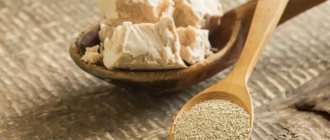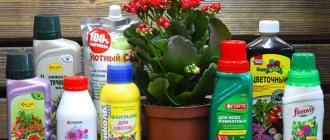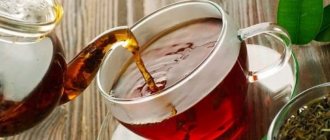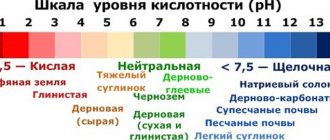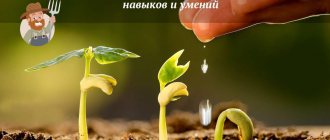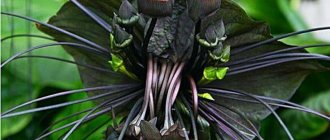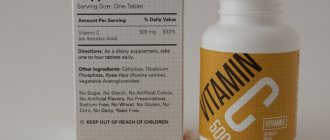Vitamins are just as important for plants as they are for humans. The only difference is that the plant is adapted to independently synthesize vitamins for itself. However, this sometimes takes a lot of energy, which the plant body could use for active development, flowering, setting and ripening of a beautiful, high-quality harvest. Of course, sufficient balanced nutrition at each stage of the life cycle of any crop is important. However, fertilizers are not exactly vitamins for plants, as it may seem to new plant growers. If, in addition to basic nutrition, you give the plant an additional dose of easily digestible vitamins and amino acids, it will save energy on their synthesis, directing it to growth, strengthening the immune system, increasing productivity or enhancing decorative properties.
How to recognize that a plant requires vitamin supplementation?
A lack of vitamins and microelements does not allow plants to reveal their potential, no matter how ideal the conditions are. You can help plants, at least domestic ones, with the help of simple pharmaceutical products. The main thing is to know when to stop and not get carried away, so as not to give your green pets an excess of vitamins and microelements, or, simply, hypervitaminosis, when the plants begin to wither and get sick. It is enough to add a weakly concentrated vitamin solution with watering once every three weeks. Signs of vitamin deficiency include:
- Thinning and weakening of stems.
- Unnatural stretching and deformation of the plant.
- Slowing down or completely stopping growth.
- Lack of flowering.
- Chlorosis
Chemical properties and composition of vitamin B12
To be precise, this is not one substance, but several compounds combined into one general group and designated by a letter of the Latin alphabet. These biologically active components contain cobalt, which is necessary for the normal functioning of many processes in our body:
- hematopoiesis;
- regeneration of cells and tissues;
- prevention of disorders in the functioning of the pancreas;
- regulation of the production of the hormone adrenaline.
Vitamin B12 itself, the lack of which can have a detrimental effect on health, from a chemical point of view, is two varieties of the same cobalamin molecule. Both options are also called vitamers. Their correct designations among scientists and doctors are cyanocobalamin and hydroxocobalamin.
Not all components of this substance can have a beneficial effect on your health and general condition. Only its active forms are of benefit to humans. These compounds are formed from vitamers - methylcobalamin and deoxyadenosylcobalamin. When we tell you what foods contain vitamin B12, we mean these active forms. Such names are not easy for an ordinary person not involved in chemistry to remember, so in the future, throughout the entire text of the article, we will use the usual and familiar letter name of the biologically active substances of this group.
Pharmacy vitamins to help the grower
As for humans, ascorbic acid is very important for plants. Vitamin C strengthens the immune system and increases resistance to disease, helps to avoid or treat chlorosis, is a regulator of water metabolism and metabolism, and affects growth. 1 tablet per liter of water for irrigation is enough. You can use ampoules, maintaining a similar concentration of the final irrigation solution. B vitamins for plants are stimulants of metabolism, and also have a beneficial effect on the development and condition of the root system (healthy roots - healthy and above-ground parts). Wherein:
- Vitamin B1 is a growth stimulator that also increases the stress resistance of plants. 1 ml of solution for injection should be diluted in 1 liter of water for irrigation.
- Vitamin B3, or nicotinic acid, is an effective resuscitator, first aid for severely weakened, stunted, dying plants. The proportions are the same - 1 ml per 1 liter. In addition to resuscitation measures, you can add vitamins B1 and B6.
- Vitamin B6 is an immune stimulant and a “savior” of weakened and defective flowers. 1 ml per 1 liter of water.
- Vitamin B12 – stimulates chlorophyll synthesis, photosynthesis and metabolism, activates growth. The proportions for the solution are the same.
Functions of water-soluble vitamins
Water-soluble vitamins play an important role, namely:
- Protect cells from damage.
- Produce collagen, a protein involved in wound healing, maintaining the structure of muscles, bones and skin.
- Increases immunity.
- Generate energy to meet the body's daily needs.
- Promote the formation of red blood cells.
- They ensure the transport of oxygen throughout the body for the smooth functioning of organs.
Let's look at the functions of each water-soluble vitamin.
- Vitamin C or ascorbic acid. It is essential for the synthesis of red blood cells and collagen. Promotes the absorption of iron (iron of plant origin). Stimulates the body's defense against infections.
An antioxidant that fights the effects of free radicals and prevents a large number of diseases and premature aging of the body. Plays a role in the synthesis of certain hormones and in maintaining tissue structure (elasticity and stability). Improves detoxification, especially liver.
Eating fresh fruits and vegetables with every meal helps meet the recommended daily intake of vitamin C.
- Vitamin B1, thiamine. The main function of this vitamin is to release energy from carbohydrates, so it plays an important role in the body. It is also important for the proper functioning of the central nervous system (stimulates cerebral functions, memory maintenance) and muscles. B1 is involved in the oxidation of alcohol, which is difficult for our body to get rid of on its own.
Vitamin B1 is not retained in the body. After fulfilling its role, everything that is not used is broken down and excreted through the kidneys in urine. Lack of vitamin B1 is the cause of the disappearing disease - beriberi.
- Vitamin B2, riboflavin. Participates in the metabolism and absorption of nutrients (proteins, lipids and carbohydrates) to convert them into energy. Necessary for tissue renewal. Important for healthy skin, hair and nails, as well as vision. It is excreted in urine, which may have a yellow tint.
- Vitamin B3 or vitamin PP. Indispensable for the absorption of proteins, lipids and carbohydrates. Participates in energy production. Necessary for growth. Its deficiency is associated primarily with malnutrition. Alcoholism, liver cirrhosis, malabsorption syndromes, diabetes, and hemodialysis can contribute to it. Vitamin B3 deficiency is the cause of skin diseases (pellagra) and digestive disorders.
- Vitamin B5, pantothenic acid. This vitamin is part of the immune system because it helps the body defend against infections. It is also involved in the metabolism of fats, proteins and carbohydrates. Keeps skin and mucous membranes in good condition.
- Vitamin B6 or pyridoxine. It is necessary for the proper use of proteins and promotes the absorption of magnesium, which is important when tired or stressed. B6 helps the nervous system function properly and is involved in most of the body's biological reactions. By acting on hormones and neurotransmitters (messaging from one neuron to another, such as serotonin and dopamine), it affects mood.
- Vitamin B8 or biotin, better known as vitamin H. Participates in nutrient metabolism and the synthesis of fatty acids and amino acids. Plays a role in the formation of vitamins B9 and B12. Protects skin, nails and hair (reducing seborrhea and therefore hair loss). This vitamin combines with certain enzymes associated with the formation or use of carbon dioxide, so it functions as a coenzyme.
- Vitamin B9, folic acid. Participates in DNA synthesis, therefore it is necessary for any process of cell reproduction, and therefore for growth. Involved in the formation of red blood cells. Prevents some forms of anemia.
- Vitamin B10, para-aminobenzoic acid (PABA). Scientists excluded it from the group of B vitamins and classified it as a vitamin-like substance. Its properties have not been fully explored. However, it is known that B10 reduces the harmful effects of ultraviolet radiation on skin and hair, normalizes the functioning of the thyroid gland and reduces cholesterol levels in the blood, and normalizes intestinal microflora.
- Vitamin B12. Its other name is cobalamin because it contains cobalt. This vitamin catalyzes the oxidation of fats, proteins and carbohydrates. Participates in many biochemical reactions of the body, in particular in the synthesis of proteins and, consequently, in the mechanisms of muscle mass development. It is necessary for the formation of red blood cells, therefore it has an antianemic effect.
TOP sales - the best vitamin concentrate for plants Hesi SuperVit
Using regular pharmacy vitamins is not always easy, because you can make a mistake with the dosage. If you have the slightest doubt and want complete confidence that the stimulant will work as it should without causing harm, you should pay attention to the proven version of Hesi SuperVit super concentrate. The bottle is small - only 10 ml, but from them you can prepare 650 liters of a solution that will contain 15 vitamins and 10 amino acids that improve the absorption of vitamins and fertilizers from soil or nutrient solution. Just 1 drop is enough to prepare 5 liters of solution for root and foliar treatment. After this, the price is 1181 rubles. no longer seems tall. The stimulant can be used throughout the entire life cycle of plants grown in soil and hydroponics, helping them to demonstrate intensive growth, abundant bud formation and high yield. The quality of the fruit also improves - just read the reviews of plant growers.
Pharmaceutical preparations with a stimulating effect for plants
Aspirin is very good for stimulating plant nutrition. Acetylsalicylic acid strengthens the immune system, helps plants resist fungus and pests, gives a boost of energy to weak and sick plants, and also helps to “wake up” after winter dormancy. Dosage: ¼ tablet per 2 liters of water. Succinic acid is a stimulator of immunity and growth, a protector for roots. The drug helps the root system recover from rot and protects against pests. A solution of ¼ gram of acid per 1 liter of water is used for irrigation, and for irrigation a 1% solution is used (1 g per 1 liter of water). Hydrogen peroxide is another resuscitator with disinfecting properties that blocks the development of pathogens and harmful insects in the soil. It can be used not only in emergency cases, but also for prevention, applied with watering or spraying. Proportions for solution: 2 tsp. drug per 1 liter of water. However, even for treatment, peroxide solution should not be used more than once a week. Glucose is a source of energy and one of the building materials in the synthesis of nutrients. Feeding plants with ready-made glucose for injection allows you to restore the plant when it loses turgor or after drought. If you bought 40% of the drug in ampoules, then 1 ml is dissolved in a liter of water, and if 5%, then 8 ml of glucose is required per liter of water. If the drug is in tablet form, then 1 tablet per 1 liter of water. the solution can be watered and irrigated. An aqueous solution of sodium thiosulfate allows you to remove harmful chlorine from tap water if it is difficult to settle the water for irrigation for 1-2 days. This is especially important for exotic plants that suffer greatly from chlorine. The concentrate is prepared at the rate of 1 ampoule of the drug (10 grams, 10%) per 150 ml of water, and then 1 drop of concentrate is diluted in a liter of water for irrigation. The concentrate can be stored in a closed plastic bottle in the dark for up to a year. Magnesia, or magnesium sulfate, is a source of magnesium, which is one of the important building blocks of chlorophyll and is very important for the normal functioning of roots. A solution of 2.5 mg of magnesium per 1 liter of water is used for watering plants with signs of chlorosis and in a generally depressed state. Ammonia will revive not only a person, but also a plant suffering from a lack of nitrogen and generally remaining in a sluggish, stunted, withering state. Ammonia disinfects the soil, having a detrimental effect on pests and fungi. Used for watering in the form of a solution in proportions of 1 tsp. ammonia per liter of water. A significant improvement in the condition of the plants is observed within a few days. However, you need to fight the temptation to continue in the same spirit due to the high risk of creating an excess of nitrogen in the soil - no more than a couple of times a month. Iodine tincture, although not included in the direct vitamins for plants, is also a good stimulator of growth and flowering, and also enhances resistance to adverse factors. 1 drop of ordinary pharmacy tincture of iodine is diluted in 2 liters of water. You need to water it very carefully - slowly, along the edge of the pot, so as not to burn the roots of the flowers. For 1 average plant, 50 ml of this solution is enough.
Castor oil, despite its origin (seeds of the poisonous castor bean plant), has a wide range of beneficial properties and is also useful to gardeners. Castor oil, used only during the flowering period, as well as special vitamins for plants (since the oil contains vitamins), stimulates abundant bud formation, as well as leaf growth. Plants become beautiful, lush, and healthy. The solution is prepared based on the proportions of 1 tsp. castor oil per 1 liter of water. Can only be used for watering. A weak solution of potassium permanganate, or potassium permanganate, gets rid of pathogenic flora and insect pests, and can be used periodically and for prevention with the function of additionally enriching the soil with potassium and manganese. To prepare a solution for watering, you need to dip the tip of a moistened toothpick in potassium permanganate powder, dip it in warm water (1 liter) and stir well until completely dissolved, then dilute this solution with water until it turns pale pink and water the plants. But you need to act very carefully so as not to burn the roots or acidify the soil too much.
What are water-soluble vitamins for?
Water-soluble vitamins are used to treat a variety of deficiency conditions, including:
- Scurvy;
- Charcot-Marie-Tooth disease;
- Fragile X syndrome;
- Macular degeneration;
- Neural tube defects;
- Pellagra;
- Prevention of peripheral neuropathy;
- Take-take;
- Wernicke's encephalopathy.
Vitamin B12 deficiency: symptoms of deficiency
From time to time, a lack of nutrients - hypovitaminosis - occurs in many people. This is especially true in the autumn-winter season, when there are fewer sources of vitamins and the stress load on a weakened body increases. You should not be afraid of this, because such phenomena are quite natural. It is only important to identify its symptoms in time and take measures to eliminate the deficiency. Then no harmful consequences will arise.
You should think about a lack of B12 compounds if you have:
- Blood clotting has worsened.
- The tongue became unnaturally red and dry.
- Difficulty swallowing.
- Itching on the scalp, dandruff and flaking appeared.
- The menstrual cycle is disrupted.
- The legs and arms often go numb, and there is a feeling as if someone is crawling on the skin.
- Depression and depressed mood are observed.
- Fatigue has increased.
- The skin has become pale or acquired a yellowish tint.
- Disorders of the cardiovascular system.
- Slow heart rate.
- Feels drowsy and tired.
- Diarrhea.
- Hair is brittle and falls out a lot.
- Small wounds and ulcers form on the mucous membranes.
- Dizziness
Of course, individually, these symptoms may be signs of other diseases, but if you observe several manifestations at once, this may be hypovitaminosis. It is easy to deal with it by consulting a doctor for advice. People at risk need to be especially careful. They lack this vitamin more often than others.
In what cases does this happen:
- during pregnancy and lactation
- for lupus
- while taking hormonal contraceptives
- if there are parasites in the body
- alcohol abuse
- during gastrectomy
- strict diets and food restrictions
- refusal of meat and other animal products: veganism, vegetarianism, raw food diet
- nicotine addiction
- for gastritis
- in old age
- with changes in intestinal microflora
- with Graves' disease
Insufficient amounts of B12 can also be negatively affected by factors such as long-term use of certain diabetes medications. The substances contained in them interfere with absorption. Hypovitaminosis is also possible in people suffering from diseases of the gastrointestinal tract. In this case, even if B12 enters the body, the internal organs are not able to absorb it. Talk about this with a specialist who is aware of your medical condition. He will prescribe you medications to compensate for the lack of B12. Their regular intake, combined with a properly selected diet and a balanced diet, will help you feel much better within two to three weeks. If you constantly postpone prevention, you can get serious diseases, the treatment of which will require much more time, money and effort.
These include:
- anemia
- nervous system disorders
- blurred vision
- Crohn's disease
- skin diseases
- memory impairment
- poor digestibility of food
- loss of appetite
- multiple sclerosis
Protect yourself and your loved ones from the consequences of hypovitaminosis, prevent the occurrence of dangerous diseases and their development. Prevention, as we know, is much better than long and complex treatment. All you need to do is undergo a medical examination on time, be examined by specialists, take the necessary tests, and also monitor your diet and the diet of your family members. To do this, you need to know what foods contain and where vitamin B12 is found. We have compiled a list for you that will help you develop your daily menu and make your diet balanced and nutritious.
